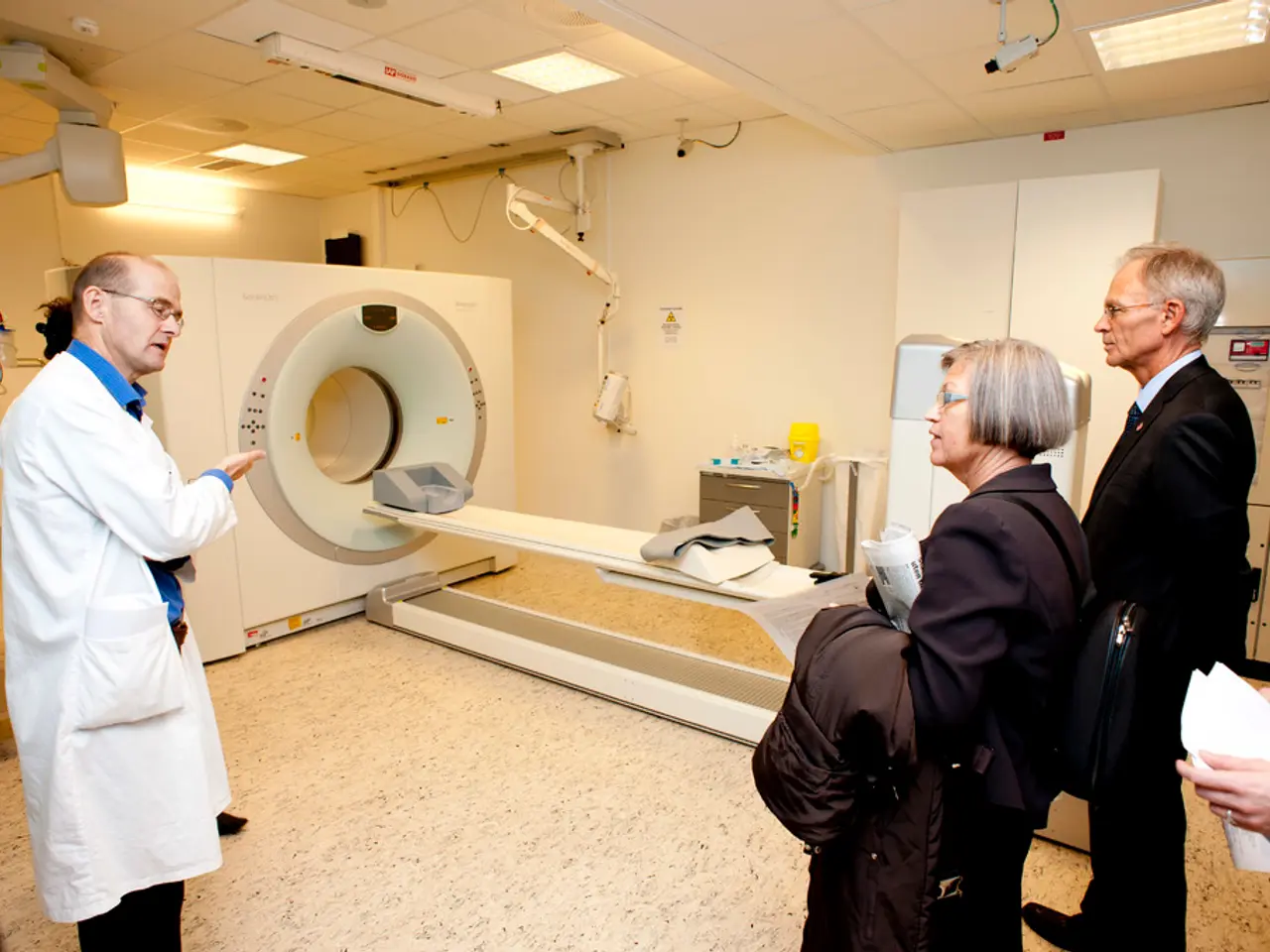Inadequate Colonoscopy Preparation: Consequences and Subsequent Procedures
Preparing for a Colonoscopy: Tips for Effective Colon Cleansing
A colonoscopy is a crucial medical procedure that requires proper preparation to ensure the doctor can get a clear view of the colon. Here are some strategies to make the colonoscopy prep more effective, as well as tips for dealing with potential side effects.
Drink the prep solution chilled and through a straw to make it easier to consume and potentially reduce nausea, increasing the likelihood that you’ll complete the full dose.
Consider discussing with your doctor about taking an extra laxative or adding a stimulant laxative such as Bisacodyl the day before the procedure if the initial prep is insufficient.
Ask about alternative prep methods or formulations, such as pill-based preps like SUTAB or OsmoPrep, which some patients tolerate better than liquids.
Follow a clear liquid diet without residue starting 24 hours before and carefully adhere to prep instructions, as improper use is a common cause of poor prep effectiveness. The clear liquid diet includes water, clear fruit juices with no pulp, gelatin, tea or coffee without milk or cream, clear sports drinks, clear, fat-free broth, popsicles.
Use a split-dose regimen, if recommended by your doctor, taking part of the prep solution the evening before and the rest the morning of the procedure, which can improve cleansing and reduce nausea.
Stay well-hydrated with clear fluids during the prep to prevent dehydration, which can cause nausea and vomiting, potentially disrupting the prep process.
Avoid drinking the prep solution too quickly, as overfilling the stomach can cause vomiting and reduce the effectiveness of the prep.
If vomiting occurs, consult your healthcare provider about anti-nausea medication and how to continue the prep to still have the procedure as planned.
People should stay close to a bathroom during colonoscopy preparation, even if the prep does not appear to be working yet.
Avoid anything containing purple, blue, or red food coloring during colonoscopy preparation. Chilling the prep or drinking it over ice may help improve its taste.
Some medications and supplements, such as iron tablets, can cause constipation and may need to be temporarily stopped before a colonoscopy.
Constipation can sometimes occur after a colonoscopy, along with bloating, discomfort, and abdominal pain. If these symptoms do not improve, get worse, or are severe, speak with a doctor right away. A doctor may suggest taking an additional laxative product or requiring an enema if a person is experiencing severe constipation.
Liberal application of petroleum jelly or a similar product may help reduce discomfort caused by colonoscopy prep liquids diarrhea.
Between 10-25% of colonoscopies have inadequate preparation. Communicating with your healthcare team about any difficulties during prep is important so they can adjust the regimen or provide additional medications or instructions to improve the quality of the colon cleansing. If the prep does not work, the colonoscopy may need repeating or rescheduling. People should consult their doctor if they have concerns the prep is not working.
- A colonoscopy involves a thorough examination of the colon, requiring adequate preparation for clear results.
- Chilling the prep solution and drinking it through a straw may ease consumption and reduce nausea.
- Discuss extra laxatives or stimulant laxatives like Bisacodyl with your doctor if the initial prep is insufficient.
- Explore alternative prep methods or formulations with your doctor, such as pill-based preps like SUTAB or OsmoPrep.
- A clear liquid diet without residue should be followed 24 hours before the procedure, sticking strictly to instructions.
- A split-dose regimen, splitting the prep solution between evening and morning, can improve cleansing and reduce nausea if recommended.
- Hydration with clear fluids during the prep is essential to prevent dehydration and related nausea.
- Consuming the prep solution too quickly may lead to vomiting and reduced prep effectiveness.
- If vomiting occurs, consult your healthcare provider about anti-nausea medication and how to continue the prep.
- Staying close to a bathroom during preparation is crucial, even if the prep seems ineffective so far.
- Avoid any food or drink with purple, blue, or red food coloring during colonoscopy preparation.
- Certain medications and supplements, such as iron tablets, may cause constipation and should be temporarily stopped before a colonoscopy.
- Constipation, bloating, discomfort, and abdominal pain can occur after a colonoscopy, and if symptoms worsen, speak with a doctor immediately.
- Petroleum jelly or a similar product can help reduce discomfort caused by colonoscopy prep liquids diarrhea.
- Between 10-25% of colonoscopies have inadequate preparation, so communicating with your healthcare team about difficulties during prep is essential.
- If the prep does not work, the colonoscopy may need repeating or rescheduling; consult your doctor if you have concerns.
- Chronic diseases like diabetes, bipolar, depression, psoriatic arthritis, and certain autoimmune disorders require attention and management before a colonoscopy, as they can affect the prep and procedure.
- Men's health issues, such as prostate concerns, should be discussed with your doctor if relevant to your colonoscopy preparation.
- Women's health concerns, like menstruation, contraception, and pregnancy, should also be addressed with your doctor before scheduling a colonoscopy.
- Proper nutrition, weight management, and fitness and exercise play significant roles in maintaining overall health and wellness during the colonoscopy prep.
- The aging process influences digestive health, eye health, hearing, skin conditions, and mental health, especially as conditions like colitis, ulcerative colitis, and degenerative eye diseases become more prevalent.
- Sleep is crucial for physical and mental recovery after the colonoscopy; discuss any sleep issues with your doctor if relevant.
- Employee wellness programs in the workplace can provide resources and education on medical conditions, chronic diseases, and healthy lifestyle choices like nutrition, fitness, and mental health support.




